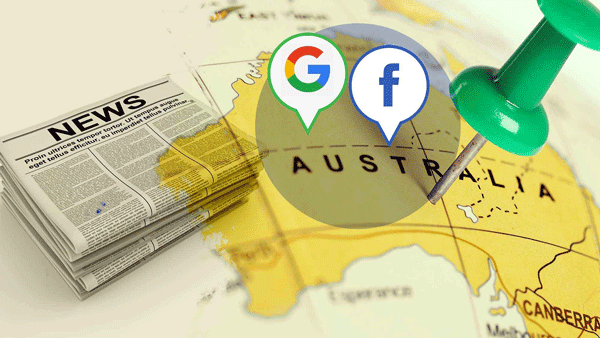PAYMENT: In several countries groups of publishers have compelled Google to pay for content they pick up from local publication in the country. Similarly, the Indian & Eastern Newspaper Society which represents all Indian publishing houses, could also seek payment for content used by Google on their search page.
By Gurbir Singh
The results you get when you Google for some information on Google depends not on your requirement but how much the various organisations and products have paid Google. We keep getting messages offering to put us on first page on Google search which guarantees you better rates for the advertisements in your content. However, several European Australian companies have compelled Google to pay for material they may have picked up from other publications.
Something very important has happened that will impact the business of news for years to come. In a global first, the Australian government has tabled legislation in Parliament that will force social media heavyweights — Google and Facebook — to negotiate and settle a price with news publishers whose content they carry.
In retaliation against the legislation, Facebook blocked the news feed, and millions of Australians got up on Thursday morning to find they could not share or view news and news related features on their personal or organization’s pages. Amid the consternation and protest, Western Australia Premier Mark McGowan called out FB for “behaving like a North Korean dictator”. But the die has been cast, and the worldwide signal to these social media biggies, and even the smaller ones, is you have to pay for news like any other product.
News gathering and dissemination of news costs money – reporters have to be paid, there is investment in videography and other recording equipment; and then news has to be uploaded via internet and satellite lines. While news publishing companies are spending on all this, Google and FB are using this content for free to attract millions of viewers on their search engine and news feed; and then cashing in on the advertising by offering billions of eyeballs.
Making hay
While newsrooms have been closing down and thousands of journalists have lost their jobs during the pandemic, in calendar 2020, Facebook’s revenue was up roughly 20 per cent to $86 billion from $70.7 billion in the previous fiscal year. Google’s owners, Alphabet Inc too turned in an income of $42 billion on revenues of $182 billion, a 13 % spike from fiscal 2019’s revenue of $161 billion. Both companies’ main source of income is digital advertising.
The stranglehold these companies have over digital ad revenues has been extensively documented. Of every $100 spent on online advertising, approximately $53 goes to Google, $28 to FB and $19 to all of the rest. While news organisations either fold up or retrench journalists to stay alive, these social media Goliaths continue to do well. In Australia alone, Google raked in $4.3 billion in ad revenue, while FB made $700 million. In response, Google says that the Australian law is “unworkable” as it is difficult to put a market price to the content.
Both Google and FB, on the other hand, say their platforms enhance the visibility of news content by providing traffic where millions log in to ‘consume’ these news reports.In India, there is no talk yet of an Australian type legislation on the agenda. News networks have been victims of free use of news content by not only FB and Google, but also by a host of other aggregator sites that skim off news content without paying for it. ‘In Shorts’, one such news site for instance, that caters to young millennials’ penchant for news consumption in abbreviated form, turns around all stories as 60-word pieces; but its source, and whether it has signed contracts for their use, are all a grey area.
Stiff penalties
Meanwhile, the new Australian Code will be keenly watched the world over. The News Media and Digital Platforms Mandatory Bargaining Code, as the draft legislation is called, “will address the bargaining power imbalance between news media businesses and digital platforms,” says Australia’s Treasurer Josh Frydenberg. Media companies will be encouraged to reach commercial deals with FB and Google outside the code; but in case they can’t, an arbiter will step in and implement the “final offer arbitration” and decide the quantum of remuneration.
The fines are stiff. If Google or FB refuse to negotiate and settle, the penalty is $10 million, or 10 per cent of turnover or 3 times the monetary benefit derived from the news content, whichever is highest. FB pulling the plug on news feeds meanwhile is also a warning to others thinking of implementing an Australian-type code. There is a war brewing. However, seeing the writing on the wall, Google has taken the lead to reach ‘voluntary’ settlements for news flow.
Google and NewsCorp have recently reached a three-year deal wherein NewsCorp will receive ‘significant’ payments when stories from its publications such as the Wall Street Journal, Barron’s, New York Post and Times of London and dozens of Australian papers are featured in the Google News Showcase. Google has also reached an agreement in January with an association of French publishers over how it will be paid for reuse of snippets of their content.
Despite all the sabre rattling by tech companies, news publishers can now look forward to formal and informal arrangements for monetizing their news flow. Hopefully, it will breathe some life into their business plans.
Coutersy:www.newindianexpress.com
